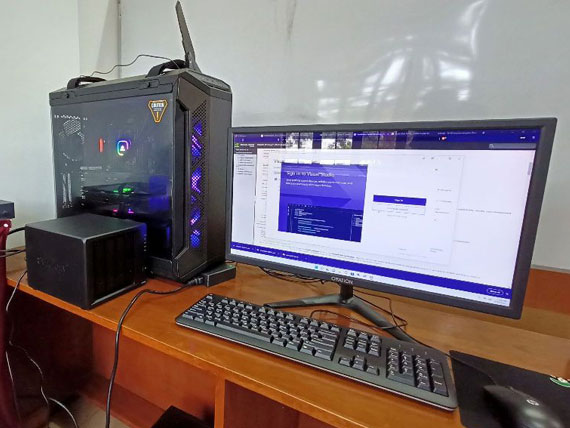- PlasMics Project funded by DOST NRCP
- PhDIA Project funded by UPD OVCRD
- PlastiCOUNT Project funded by DOST PCIEERD
- MicroSEAP Project funded by UKRI NERC
- Microplastics counter donated by Dr. Andrew Mayes from the University of East Anglia






















QuICMaPP Facility
A plastics quantification, identification and classification facility using deep learning is underway at the UP Baguio College of Science. Called the QuICMaPP or the “Quantification, Identification, Classification and Mapping of Plastics Pollution Facility”, the laboratory boasts of a workstation for processing large amounts of image data to produce up-to-date AI-generated mapping of plastics pollution in the Philippines.
Equipped with two RTX 3080ti’s the workstation is capable of quickly detecting and quantifying the plastics in an image through the use of an artificial intelligence model.
An RTK drone stationed at the Marine Science Institute can map out large areas such as coastlines and open water where it shall be processed in the workstation for plastic identification and classification with up to 5 cm accuracy.




